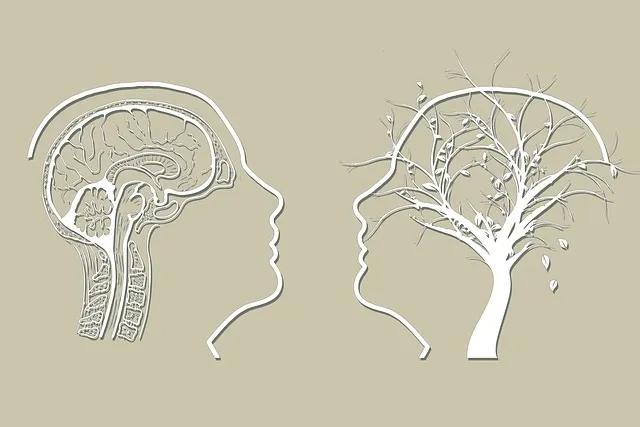Mental wellness journaling, guided by Littleton Kaiser Permanente behavioral health providers, is a powerful tool for self-reflection and personal growth. It helps individuals track emotional journeys, explore stress management, build resilience, and practice positive self-talk. Through dedicated journaling spaces and personalized prompts, people can gain deeper connections with their mental health, enhance self-awareness, and cultivate a more positive outlook on life. Allocating just 15 minutes daily for reflection significantly contributes to overall well-being, with consistency being key to sustainable positive changes.
“Unwind and reconnect with yourself through the transformative power of mental wellness journaling. This comprehensive guide, crafted in collaboration with the expert behavioral health providers at Littleton Kaiser Permanente, explores how this practice can be a powerful tool for emotional well-being. From understanding its benefits to setting up your ideal journal, we delve into various prompts and offer practical tips for integrating this daily ritual into your routine. Embrace a healthier mind with this insightful journey.”
- Understanding Mental Wellness Journaling: A Personal Journey
- Benefits of Journaling for Emotional Well-being (Littleton Kaiser Permanente behavioral health providers perspective)
- Setting Up Your Journal: Tools and Techniques
- Exploring Different Types of Journaling Prompts
- Integrating Journaling into Daily Life: Tips from Behavioral Health Experts
Understanding Mental Wellness Journaling: A Personal Journey

Mental wellness journaling is a powerful tool for self-reflection and personal growth, allowing individuals to track their emotional journeys. This practice involves jotting down thoughts, feelings, and experiences in a private space, fostering a deeper connection with one’s mental health. Many people find solace in this form of expression, especially when guided by professionals like those from the Littleton Kaiser Permanente behavioral health providers. These experts can help individuals navigate their emotions, providing insights into patterns and triggers that may impact their well-being.
Through regular journaling, one can explore various aspects of their mental wellness, such as stress management, resilience building, and cultivating positive self-talk. The process encourages self-awareness, enabling people to recognize the impact of their thoughts and behaviors. This is particularly beneficial for individuals looking to implement a Community Outreach Program Implementation tailored to their needs, considering factors like Cultural Sensitivity in Mental Healthcare Practice. By embracing Mind Over Matter principles, journaling becomes a transformative practice, empowering individuals to take charge of their mental health and cultivate a more positive outlook on life.
Benefits of Journaling for Emotional Well-being (Littleton Kaiser Permanente behavioral health providers perspective)

Journaling has emerged as a powerful tool for emotional well-being, and Littleton Kaiser Permanente behavioral health providers have recognized its potential in fostering mental wellness. By putting pen to paper, individuals can engage in a therapeutic process that allows them to explore and understand their thoughts, emotions, and experiences. This simple act of writing can lead to significant benefits, such as improved self-awareness, enhanced coping skills development, and better stress management.
For those dealing with challenges like depression prevention, journaling provides a safe space for expression and reflection. It encourages individuals to confront and process difficult feelings, offering a sense of clarity and control over their emotional state. Furthermore, Littleton Kaiser Permanente behavioral health providers often incorporate mental wellness coaching programs that utilize journaling as a means to support clients in their journey towards better mental health, promoting personal growth and resilience.
Setting Up Your Journal: Tools and Techniques

Setting up your mental wellness journal is a powerful first step towards self-care. At Kaiser Permanente Littleton, behavioral health providers encourage this practice as a potent tool for managing stress and preventing burnout, especially in the demanding healthcare field. Start by choosing a space dedicated to your journal—a quiet corner of your home or even a special notebook you can carry with you. Incorporate sensory elements that soothe and inspire; perhaps a calming scent, soothing music, or artwork that resonates with you.
Consider using specific techniques to structure your journaling practice. Some find it helpful to begin with a ‘mindful moment’ where they jot down their immediate thoughts and sensations without judgment. This can be followed by reflecting on the day’s experiences, identifying sources of stress, and exploring potential solutions. Incorporate gratitude practices by listing things you’re thankful for—a simple yet powerful tool in cultivating resilience. Remember, your journal is a personal space to explore your mental health, so tailor these techniques to fit your unique needs, much like the expert behavioral health providers at Kaiser Permanente Littleton guide their patients.
Exploring Different Types of Journaling Prompts

Journaling prompts can vary widely to suit different preferences and needs. For individuals seeking mental wellness guidance, prompts that encourage reflection on emotions, gratitudes, and even challenging life experiences can be particularly beneficial. The Littleton Kaiser Permanente behavioral health providers suggest starting with simple prompts like “What made me happy today?” or “What am I grateful for in my life right now?”. These questions promote positive thinking and can help shift one’s focus towards the positives, fostering a sense of contentment and well-being.
For those dealing with past traumas or seeking burnout prevention strategies, more targeted prompts could be employed. For instance, “I acknowledge and release any residual stress or pain from past experiences” or “How do I practice self-care when facing overwhelming tasks?”. Such prompts facilitate a deeper exploration of personal feelings and can be a valuable tool in trauma support services, helping individuals process their emotions and cultivate healthier coping mechanisms.
Integrating Journaling into Daily Life: Tips from Behavioral Health Experts

Integrating Journaling into Daily Life: Tips from Littleton Kaiser Permanente Behavioral Health Providers
In today’s fast-paced world, finding moments for self-reflection and mental wellness is essential. Mental wellness journaling exercises have emerged as a powerful tool to help individuals process their thoughts and emotions. The behavioral health providers at Littleton Kaiser Permanente encourage the integration of journaling into daily routines to cultivate mindfulness and emotional resilience. Start by allocating just 15 minutes each day to your journal, focusing on the events that shaped your mood or experiences that left an impression. This practice allows you to develop a deeper understanding of yourself and your reactions, fostering a strong foundation for mental wellness.
The experts at Littleton Kaiser Permanente also emphasize the therapeutic value of specific journaling techniques, such as exploring mind over matter principles by reframing negative thoughts. Incorporate conflict resolution techniques into your writing, considering different perspectives and seeking constructive outcomes. By regular practice, these strategies can enhance emotional intelligence and overall mental well-being. Remember, consistency is key; make journaling a non-negotiable part of your self-care routine for sustainable positive changes.
Mental wellness journaling is a powerful tool, backed by insights from Littleton Kaiser Permanente behavioral health providers, that can significantly enhance emotional well-being. By integrating this practice into daily life, individuals can gain deeper self-awareness, process emotions effectively, and cultivate resilience. Whether through structured prompts or free-flowing thoughts, mental wellness journaling offers a safe space for self-reflection and personal growth, making it an accessible and transformative activity for all.






